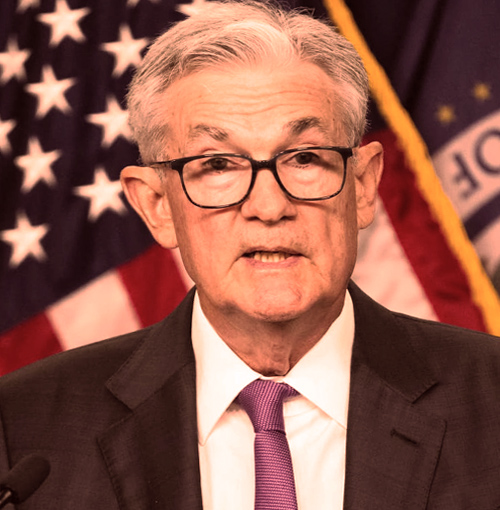
The Pulse of the Market: A Weekly Recap
In a dynamic world, investment markets are constantly on the move, responding to a myriad of factors such as inflation, earnings reports, and geopolitical events. Last week, the U.S. equities market experienced a particularly positive stretch, buoyed by favorable inflation and earnings reports.
Winning Streak in the U.S. Equities Market
Last week saw U.S. equities experiencing a winning streak, with the Dow Jones, S&P 500, and Nasdaq all charting positive territory. Encouraging inflation reports coupled with strong corporate earnings largely drove this performance, sparking renewed investor enthusiasm in stocks.
Tip: Investors should consider the performance of market indices in the context of their specific portfolio and investment goals.
Earnings Results: Winners and Losers
Individual corporate earnings were at the forefront of market activity, with healthcare giant UnitedHealth Group (UNH) taking the lead in the Dow and S&P 500 following its strong earnings report. Notably, this positivity spilled over to other health insurers in the market. On the banking front, Wells Fargo (WFC) exceeded quarterly expectations, propelling its shares upward. Tech heavyweight Nvidia (NVDA) also enjoyed a surge in its share price following a favorable analyst upgrade.
Conversely, State Street Corporation (STT) faced a downturn after missing revenue and net interest income estimates. Telecom equipment makers Nokia (NOK) and Ericsson (ERIC) also witnessed a dip in their shares following warnings of decelerating sales.
Interesting Fact: The "earnings season," when most public companies release their quarterly earnings reports, typically starts one to two weeks after the last month of each quarter (December, March, June, and September).
Tech and Pharma Sector Movements
In the technology sector, a merger proposition between Microsoft (MSFT) and Activision Blizzard (ATVI) led to speculation that they might sell cloud gaming rights in the U.K. to win merger approval. This news, along with an upgrade from UBS, contributed to a rise in Microsoft's shares. In the pharmaceutical sector, Eli Lilly (LLY) saw its shares ascend after the acquisition of biopharma firm Versanis, a strategic move to bolster its obesity treatment portfolio.
Fact: Tech and pharma sectors are known for their high-growth potential, but they also come with higher risk due to the rapid pace of innovation and regulatory scrutiny.
Streaming Services and the Hollywood Strike
Streaming services encountered a rough patch as Hollywood actors went on strike, resulting in the first dual-industry walkout in 63 years. This industrial action negatively impacted shares of Paramount Global (PARA) and other streaming services, reflecting the close interplay between the entertainment industry and market performance.
Interesting Fact: The last Hollywood strike, which took place in 2007-2008, lasted 100 days and cost the Los Angeles economy an estimated $2.5 billion.
Other Market Factors – Futures, Treasuries, Forex, and Cryptos
While equities were the main focus, other markets also saw movements. Oil futures experienced a downward shift, while gold futures remained largely unchanged. Meanwhile, the 10-year Treasury note climbed. In currency markets, the U.S. dollar gained against the pound and yen but lost some ground to the euro. Notably, most major cryptocurrencies also increased in value during this period.
Frequently Asked Questions
How can investors trade news about corporate earnings?
Investors can trade news about corporate earnings by closely following earnings reports, analyst estimates, and market sentiment around a particular company or industry. Based on this information, they can make informed decisions about buying, selling, or holding specific stocks.
What impact does inflation data have on the equities market?
Inflation data can significantly impact the equities market. Generally, high inflation can lead to decreased purchasing power, potentially slowing economic growth and negatively impacting stocks. On the other hand, manageable inflation can indicate a healthy economy, boosting investor sentiment and stock prices.
What effect did the Hollywood actor's strike have on streaming services stocks?
The Hollywood actor's strike led to a downturn in streaming services stocks. As these services rely heavily on a steady stream of new content, any disruptions, such as a strike, can negatively impact their stock performance.
Tip: Stay informed about movements in different financial markets to make more comprehensive investment decisions.
The past week in U.S. equities brought a wave of positive market sentiment driven by favorable inflation data and strong corporate earnings. Key players like UnitedHealth, Wells Fargo, and Nvidia saw significant gains, while others like State Street Corporation and Nokia faced challenges. Notably, industrial actions in Hollywood had a discernible impact on streaming services.
Beyond equities, movements in oil futures, gold futures, treasuries, forex, and cryptocurrencies underscored the interconnected nature of financial markets. This in-depth look at the week's market dynamics provides investors with valuable insights to navigate the ever-changing financial landscape.
- Share this article





